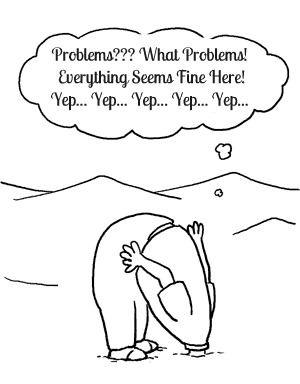There are numerous examples of
increased extreme weather frequency already being attributed to humans in the published peer-reviewed scientific literature. For example,
Pall et al. (2011):
"Here we present a multi-step, physically based ?probabilistic event attribution? framework showing that it is very likely that global anthropogenic greenhouse gas emissions substantially increased the risk of flood occurrence in England and Wales in autumn 2000"
Min et al. (2011):
"Here we show that human-induced increases in greenhouse gases have contributed to the observed intensification of heavy precipitation events found over approximately two-thirds of data-covered parts of Northern Hemisphere land areas."
Dai et al. (2011):
"All the four forms of the PDSI show widespread drying over Africa, East and South Asia, and other areas from 1950 to 2008, and most of this drying is due to recent warming. The global percentage of dry areas has increased by about 1.74% (of global land area) per decade from 1950 to 2008."
Zwiers et al. (2011):
"Therefore, it is concluded that the influence of anthropogenic forcing has had a detectable influence on extreme temperatures that have impacts on human society and natural systems at global and regional scales"
Coumou & Rahmstorf (2012):
"Here, we review the evidence and argue that for some types of extreme ? notably heatwaves, but also precipitation extremes ? there is now strong evidence linking specific events or an increase in their numbers to the human influence on climate. For other types of extreme, such as storms, the available evidence is less conclusive, but based on observed trends and basic physical concepts it is nevertheless plausible to expect an increase."
Hansen et al. (2012):
"we can state, with a high degree of confidence, that extreme anomalies such as those in Texas and Oklahoma in 2011 and Moscow in 2010 were a consequence of global warming because their likelihood in the absence of global warming was exceedingly small."
Source: NASA/Goddard Space Flight Center GISS and Scientific Visualization Studio
Like Hansen et al.,
Donat and Alexander (2012) found that global warming has made extreme heat waves more likely to occur.
"...there is a 40% increase in more recent decades in the number of extreme temperatures defined by the warmest 5% of the 1951?1980 distribution."
Like Coumou & Rahmstorf,
Otto et al. (2012) found that global warming contributed to the intensity of the extreme 2010 Russian heat wave, concluding there was
"...a three-fold increase in the risk of the 2010 threshold being exceeded, supporting the assertion that the risk of the event occurring was mainly attributable to the external trend."
While it is very difficult to attribute individual weather events to global warming, we do know that climate change will '
load the dice' and result in more frequent extreme weather events.
The IPCC Special Report on Managing the Risks of Extreme Events and Disasters to Advance Climate Change Adaptation (
SREX), also discusses the relationship between human-caused climate change and various types of extreme weather events. For example, the SREX says:
"It is likely that anthropogenic influences have led to warming of extreme daily minimum and maximum temperatures at the global scale. There is medium confidence that anthropogenic influences have contributed to intensification of extreme precipitation at the global scale. It is likely that there has been an anthropogenic influence on increasing extreme coastal high water due to an increase in mean sea level."
and
"Extreme weather and climate events, interacting with exposed and vulnerable human and natural systems, can lead to disasters."
On drought, the SREX finds:
"There is medium confidence that some regions of the world have experienced more intense and longer droughts, in particular in southern Europe and West Africa, but in some regions droughts have become less frequent, less intense, or shorter, for example, in central North America and northwestern Australia."
The SREX also has important conclusions regarding future drought changes:
"There is medium confidence that droughts will intensify in the 21st century in some seasons and areas, due to reduced precipitation and/or increased evapotranspiration. This applies to regions including southern Europe and the Mediterranean region, central Europe, central North America, Central America and Mexico, northeast Brazil, and southern Africa."
This conclusion is supported by
Dai (2010), for example:
"Regions like the United States have avoided prolonged droughts during the last 50 years due to natural climate variations, but might see persistent droughts in the next 20?50 years"
Research by
Emanuel (2012),
Grinsted et al. (2013), and
Holland and Bruyère (2013) concluded that global warming has already led to more intense hurricanes.
Elsner et al. (2008) found that:
"With the exception of the South Pacific Ocean, all tropical cyclone basins show increases in the lifetime-maximum wind speeds of the strongest storms ... Our results are qualitatively consistent with the hypothesis that as the seas warm, the ocean has more energy to convert to tropical cyclone wind."
As Grinsted et al. noted,
"we have probably crossed the threshold where Katrina magnitude hurricane surges are more likely caused by global warming than not."





